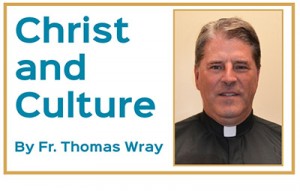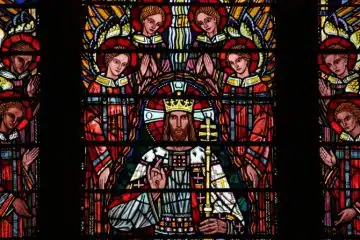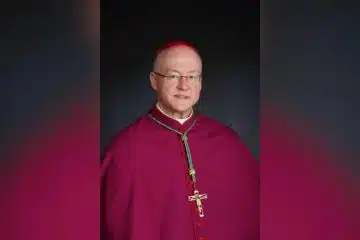Brooklyn: Homesickness and the Lenten journey
 Spoiler Alert: if you’ve not yet seen the film Brooklyn you may not want to read the end.
Spoiler Alert: if you’ve not yet seen the film Brooklyn you may not want to read the end.
Our increasingly secularized culture insists that we should all be “spiritual but not religious.” Brooklyn, a 2015 film distributed by Fox Searchlight Pictures, is an antidote to such one-dimensional political correctness. It paints a luminous and compelling picture of a person fully alive because she is both spiritual and religious.
It tells the tale of a young Irish woman emigrating to New York in 1951. Eilis Lacey (played by Oscar-nominee actress Saoise Ronan) is blessed with a good job, a boarding house, scholarships to night school, and a caring Catholic priest benefactor. On the material level of her journey, she has little to complain about.
Her assimilation into American culture is punctuated by a family tragedy back home, necessitating her return. She is unprepared for the waves of longing for her native land this evokes. She must decide where she will ultimately find her truest life. “My body is here but my heart is there,” she laments.
Part of her navigation is through ritual moments, traditions and celebrations that are clearly Catholic. The film quietly cycles thru sacramental moments of prayer, parenting, family, marriage, work and death. It’s refreshing to Hollywood treat religion with such fairness and balance.
In all this Brooklyn gives us a perfect Lenten catechesis. It reminds us that however successful we become in this material world, it will never be our ultimate home. “Remember that you are but dust and to dust you shall return” is our annual Ash Wednesday ritual reminder. As Jesus taught, we are both in this world but not of it (John 17.14)
Immigrants in their vulnerability remind us of this aspect of the human condition. This is why Pope Francis, himself the son of immigrants, calls us to welcome them in our midst. As the Catechism teaches, we ourselves are God’s “pilgrim people,” on a journey towards our destination of eternal friendship with God (CCC 1045).
So acutely did Celtic people sense this depth dimension of our human condition that they coined a Gaelic word to describe it: Hiaraeth. It speaks that mystical yearning for a home to which you cannot return.
This God-given longing is on magnificent and unsentimental display in Brooklyn. After much soul-searching Eilis finds her deepest love and thus her truest home. Speaking on her return-to-America voyage with a first-time Irish émigré passenger, Eilis graciously coaches her about the inevitable homesickness: “You’ll be so homesick you’ll think you’re going to die, but you won’t. Then you’ll realize where your life is.”
Brooklyn is a powerfully Catholic, counter-cultural reminder that humans are not just spiritual, but also inherently religious. It would be a great discussion-starter about the nature of love, prayer, family, parenting, marriage, work and the life-long journey of conversion of heart. It is a superb Lenten-discussion film for couples, small groups, or families with kids older than 13.
Of note, the film contains a non-explicit premarital encounter, several uses of rough language, and some crude and crass language. The Catholic News Service classification is A-II — adults and adolescents. The Motion Picture Association of America rating is PG-13 — parents strongly cautioned. Some material may be inappropriate for children under 13.
Welcome to Christ and Culture. Here Father Thomas Wray will explore connections between Jesus Christ and his people through the lens of pop culture.
Previous Christ and Culture installments
The Super Bowl and the Episcopalian Divorce













